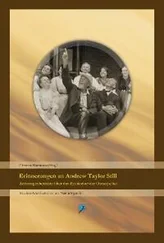Over the next few weeks he travelled to and fro across southern Spain, peering slightly wistfully, as a would-be naval officer, at the big artillery pieces which loomed threateningly from the fortified galleries of Gibraltar, searching for Phoenician ruins in Cadiz, jotting down revolutionary slogans from the walls of Seville, and muttering tetchily all the while about his personal discomfort: gnats and crudely executed religious oil paintings in Seville, and another ‘night of purgatory in the diligence’ on the roads through the mountains of the Santa Morena – everything, it seemed, was designed for his irritation.
He arrived in Lisbon on 19 March after another fifteen-hour train journey. The life of a poor wanderer was beginning to pall, and he planned to spend some time in the Portuguese capital gathering his strength and throwing himself with more enthusiasm, at least for a while, into the role of middle-class traveller. He spent sixteen days there, staying at the English-run Barnards Hotel, drawing more funds from home, and meeting fellow travellers and a few compatriots who lived in the city. ‘The banker introduced me to the Gremio, an admirable club … which was immediately opposite,’ he noted. This, perhaps, was more the sort of life that his relatives in Suffolk would have envisaged – although there is still no suggestion that he might resume the studies which had enjoyed such all-consuming importance only a few months before.
He needed the rest because his health was failing – just as the travelling was about to get even more wearing. ‘Two long nights and a day’ in a stagecoach took him to Toledo, and on to Madrid, where he rested for another week. ‘Thence by the night mail 16 hours to Valencia – a journey almost too great for me, being now full of weakness and with a terrible bronchitis, but I trust nearly the last.’
This, perhaps, was the moment he was referring to years later, when he confessed he had been tempted to end his travelling and return home; or maybe he was looking forward to a longer rest in Italy. In any case, there were more hardships to come before he left Spain.
He set off early in the morning for Barcelona, where he hoped to find a ferry out of Spain. But the civil wars were still raging around him, sometimes dangerously close, with the counter-revolutionary Carlist movement mounting a running guerrilla campaign against the liberal and republican forces. For all their Catholicism and dislike of foreigners, and however exciting a character he had found his gran carabinero republican, Doughty might have been expected to feel some sympathy for the arch-traditionalists of the Carlist movement; what troubled him, though, was the disruption of his travel plans rather than the politics or the physical danger. The whole region was ‘infested by assassins, Carlists’, but personal safety never seems to have been a great concern of Doughty’s – not on the slopes of Vesuvius, not in North Africa, not in his later travels in Arabia, and not here either. ‘At Tarragona, we were compelled to halt. Half the distance from there to Barcelona, they occupy the way, having fired upon the train the previous evening, and threatening the lives of the engine drivers if they conducted trains. For this, the traffic is at a stand.’
And, with Barcelona now completely cut off from the landward side, at a stand it continued for three days. Doughty was stuck in the port of Tarragona. The only way past the surrounding Carlists was by sea, and late on the Sunday evening he embarked on a little schooner for the brief run down the coast.
In Barcelona a ship was in port, about to set out for France, and in less than twenty-four hours he was on board. Two nights in Marseilles were spent sleeping under the stars before he found a passage on to Naples, from where he had now decided – his health apparently no longer giving him trouble – to travel on to Greece. ‘The morning of the second day, we cast anchor in the Bay of Naples, a good passage and a fair wind.’
There are four brief lines in his diary noting that he spent some time in the Pension Guidotti, that he climbed Vesuvius again, that he visited the ruins at Herculaneum, and that he spent two or three days on the nearby island of Ischia; but there, abruptly, his own account ends.
With all its infuriating gaps, and with all the obvious limitations of notes scribbled briefly in a traveller’s spare moments, the diary is practically the only clue there is to how the bland, conventional twenty-seven-year-old young man who had left for Holland three years before could develop into the acute observer who would later write the Travels in Arabia Deserta . Although we know from occasional mentions in the diary that he wrote lengthy and descriptive letters home – he refers, for example, to accounts of Madrid and a great bullfight he witnessed there – hardly any of them survive.
That is not an accident: Doughty had throughout his life a passionate sense of his own privacy, and was never a friend to biography. Personal enquiries were answered tersely, if more or less accurately. Almost all his letters home were burned, according to his wife – and after his death she herself carefully destroyed those he had written later to her, 1 while Doughty himself replied with horror to an apparently harmless request for a picture of himself for a book on Arabian travel. ‘I have not such a photograph in the world. I may be allowed to say it would be rather contrary to my perhaps now old-fashioned ideas to see a portrait of myself, a private person, in a published book.’ 2
It is another dimension of his loneliness, the desire for privacy stretching beyond his immediate surroundings. For all its shortcomings, and often despite Doughty himself, the diary offers a rare first-hand, contemporaneous account of three formative years of the life of this determinedly ‘private person’.
It is often little more than a collection of jottings, much like the notebooks he later filled as he wandered through the Arabian desert, with words repeated, sentences unfinished, and judgements half-formed – and yet it still shows the first stirrings of his own writing style, with its incisive, familiar images, its occasional pomposities, and its striving for a proper, judicious scientific detachment.
For the next three and a half years, following his travels is a matter of picking up snippets from letters which were often written years afterwards, references in his later works, grudging notes of his memories in old age. Not until he sets off into the Arabian desert with the Hadj caravan and begins once again to keep a detailed notebook will there be so precise a record of the growth of the writer’s mind.
In the spring and summer of 1873 he based himself in Athens, ‘gypsying’ around the countryside, as he put it – staying at lodging houses or occasionally sleeping under the stars.
A few memories from those days surfaced later as vivid markers in his writings. In The Dawn in Britain , for example, he would describe how the Gauls, in their ill-fated assault on Delphi, were led through the mountains above the Oracle by Thracian guides until they reached the
… parting of two ways, from the cliff-steeps,
Where, of some antique hero, shines white tomb. 3
The aching cold of the lonely mountain wanderer is remembered in Doughty’s description of the Gauls encamped on the inhospitable Greek hillside as the snow begins to fall.
Brennus and few lords with him, founden hath
Uncertain shelter, the wild eaves of craigs;
Whereunder, hunger-starved, when fallen this night,
And without fire, they daze, with stiffened joints … 4
He was alone, travelling light, and still without most of his books. The passionate devotion to his ‘studies’ was now firmly behind him; his priority the ruins on the ground rather than the words on the page.
Читать дальше












